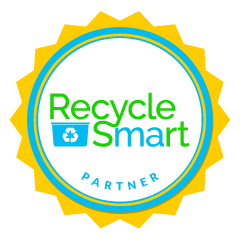Mercury (Batteries) Rising
Whew – it’s been one hot summer! Let’s talk about another “hot topic”: mercury. Specifically, batteries that contain mercury. In this issue, we’re doing a deep dive into batteries (all kinds!) and what to do when you’re finished with them.
First rule — NEVER put batteries of any kind in your household recycling bin. While they do contain metal, some batteries pose serious risks and lead to explosions and fires in trucks and at recycling facilities.
So how do you responsibly dispose of batteries? That depends on the battery chemistry.
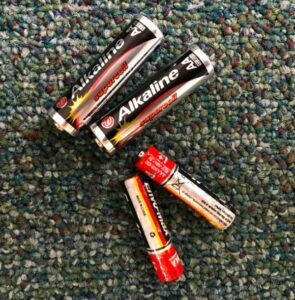
Traditional single-use batteries (they can’t be re-charged) are the easiest. These are your AA, AAA, C, D and 9 volt batteries and their “chemistry” is either alkaline or lithium (not to be confused with lithium-ion, which is a whole different animal!). Both alkaline and lithium batteries that look like what’s pictured here are safe to throw in the trash.
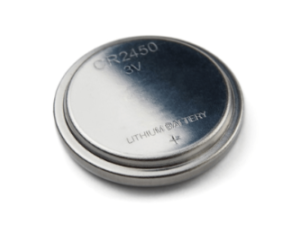
Button-cell batteries are found in watches, hearing aids, toys, and other small portable devices. Since 2017, most manufacturers no longer add mercury to button cell batteries but because they are long-lived, many are still in circulation. Check the label for “Hg” which means they have mercury. Mercury is hazardous and should be disposed at a mercury collection point. Click here to find a drop-off site or call your municipal Board of Health.
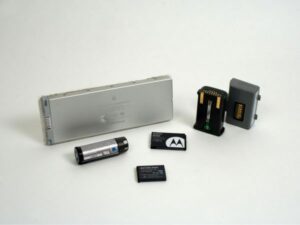
Lithium ion (Li-Ion) batteries are rechargeable and are considered the backbone of mobile electronics (cell phones, laptops) and cordless power tools. They do not contain mercury but they are on the trash and recycling industry’s “most unwanted” list because the risk of fire is so high. Click here for a recycling location. Click here for more info on lithium-ion batteries.
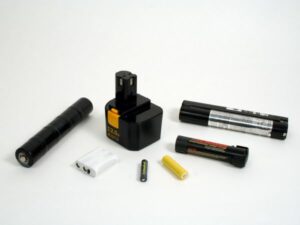
Other common household rechargeable batteries include nickel cadmium (Ni-Cad) and nickel metal hydride (Ni-MH). Ni-Cads are an economical battery but contain cadmium which is toxic. Ni-MH batteries perform well in high-drain devices and are cadmium free, but expensive. Both types are used in cordless tools, cordless phones, digital cameras and two-way radios. Find recycling locations here.
Unlike the rechargeable battery program, there is currently no national stewardship law for free recycling of single-use batteries such as AAA, AA, 9V, C, or D cell – except in Vermont. These batteries do not contain mercury so when they are done, you can throw them in the trash.
For more information on recycling options for all types of batteries, visit: https://www.call2recycle.org. Photo credits: Call2Recycle.
Recycle Smart is Rockin' and Rollin'
Chronicle (WCVB) aired an episode on recycling at the end of June – and gave a shout out to Recycle Smart MA! Since then we’ve seen a big uptick in website visits and new subscribers.
- Of the more than 9,700 website views in the two weeks following the episode, 83% were new visitors.
- We hit an all-time high of new users visiting the Recyclopedia, an easy-to-use online search tool where you can find recycling answers for hundreds of items.
- We also saw a huge jump in subscribers to this newsletter – welcome everyone!
Let’s keep this momentum going! Share this newsletter with your family, friends, and colleagues – and tell them to check out RecycleSmartMA.org.
Partner Spotlight: Brandeis University
Brandeis University, located in Waltham, is working to elevate sustainability on campus and in the community. From facilitating reuse through their end-of-the year move-out donation program to undertaking efforts to reduce its carbon footprint, to promoting ways to recycle right, Brandeis is proving its commitment to the environment. The University utilizes the Recycle Smart MA signage and outreach materials throughout campus and recognizes the importance of being consistent at work, school, and home.
Mary Fischer, Manager of the University’s Office of Sustainability, runs a weekly training session focused on recycling as part of new employees’ orientation. She includes Recycle Smart images and quizzes participants on what items are recyclable. She also manages the Green Office Certification program which helps faculty and staff “green” their office through waste reduction, composting, and proper recycling.
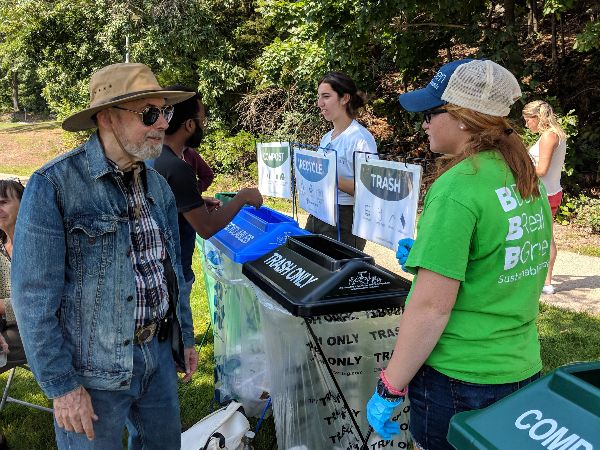

All dorm rooms are equipped with trash and recycling bins (“buddy bins”) and when they move in, students receive a flyer about how to live green at Brandeis, which includes the Recycle Smart MA postcard. During orientation week, student volunteers educate others on the triple sort waste stations at the dining hall and at other school events (pictured above).
For more on how Brandeis is utilizing Recycle Smart MA as well as their other sustainability initiatives, visit: www.brandeis.edu/sustainability. To become a Recycle Smart Partner, click here.
The Great Exchange
On July 22, MassDEP staff attended an event recognizing the accomplishments of a collaborative effort between the Devens Eco-Efficiency Center and Reliant Medical Group. Over the past year the groups worked diligently to rescue 38,000 pounds of office, kitchen, cleaning and medical supplies, as well as office furniture, fixtures, and janitorial equipment no longer needed when Reliant moved and consolidated 12 locations. More than 850 pounds of medical supplies were donated to Partners for World Health to distribute to medical facilities in need. And over 200 pounds of baby formula, office, and school supplies were donated to Project New Hope to support veterans and their families.
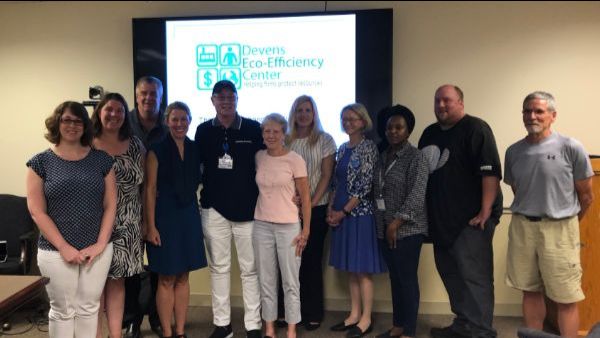
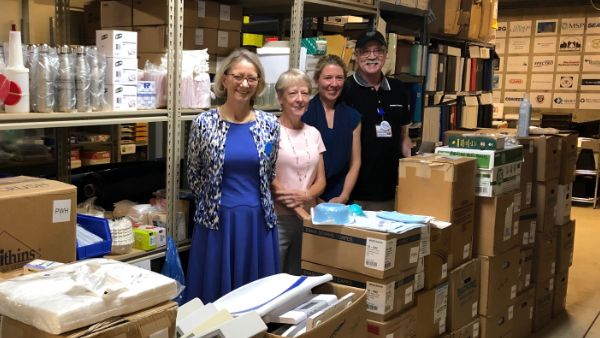
The Devens Eco-Efficiency Center received a grant from the MassDEP Sustainable Materials Recovery Program (SMRP) in 2018 that enabled them to expand their Great Exchange reuse program, which has new and like-new furniture, office supplies, school supplies, crafts, and other items for half cost. Check them out!
Social Media Highlight
The Recycle Smart Facebook post that got the most shares and comments during the month of July was this link to a Boston Globe article on swap shops.
There are at least 85 swap shops in Massachusetts and more than 40 informal “reuse areas”. If your city or town doesn’t have one, let them know that MassDEP provides grants for municipalities to start one.
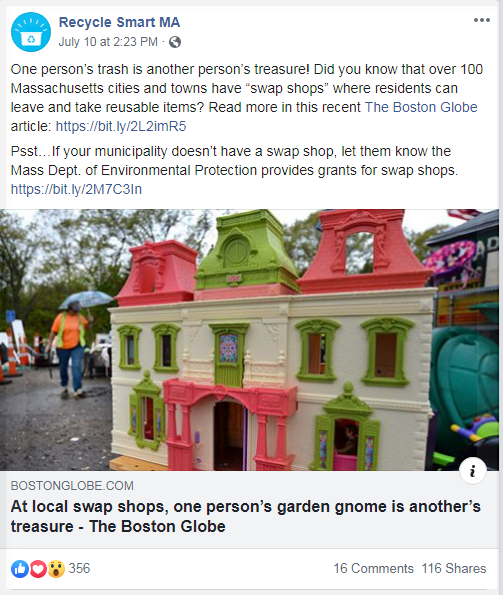
Enjoy the sun! And thanks for recycling smart with us,
The Recycle Smart Team at MassDE
